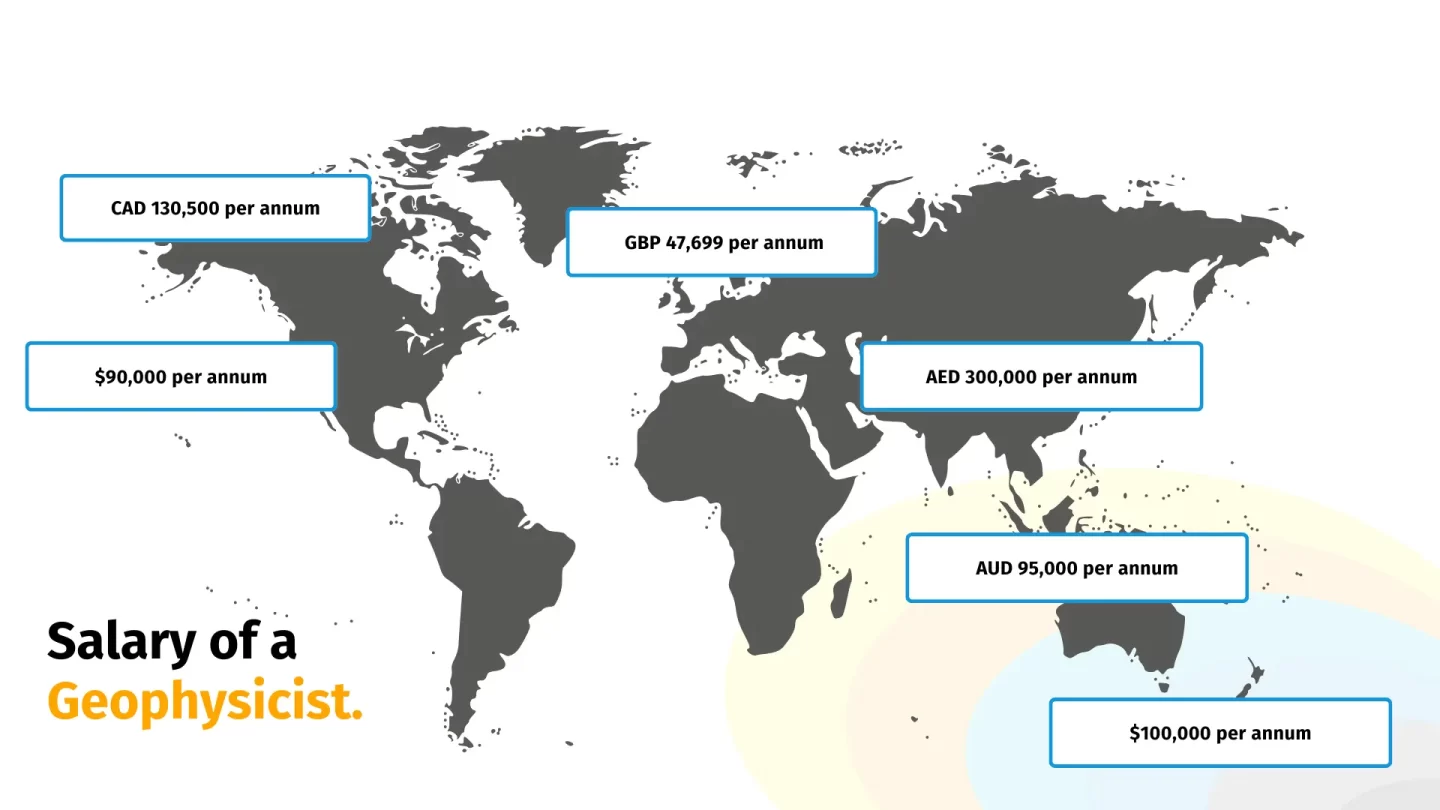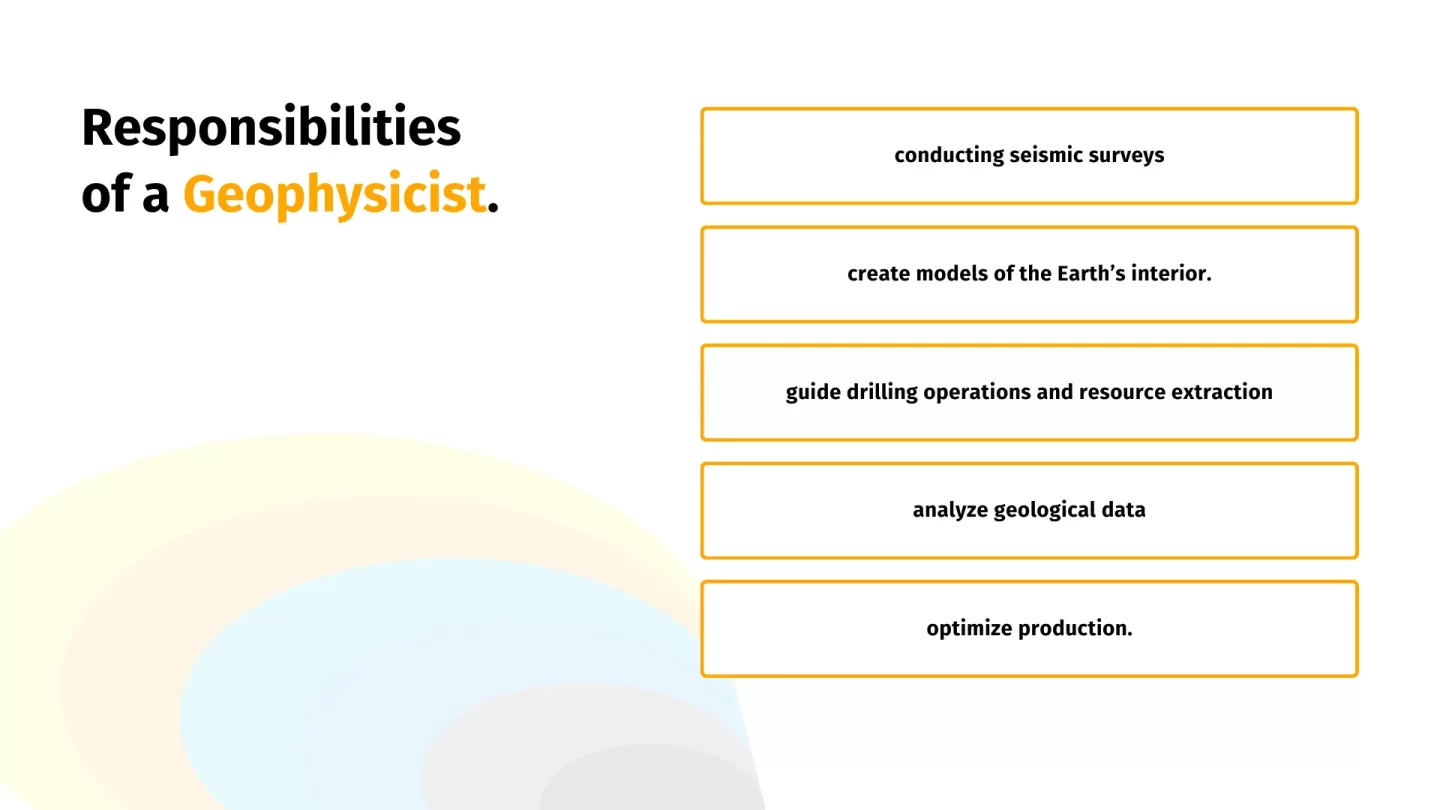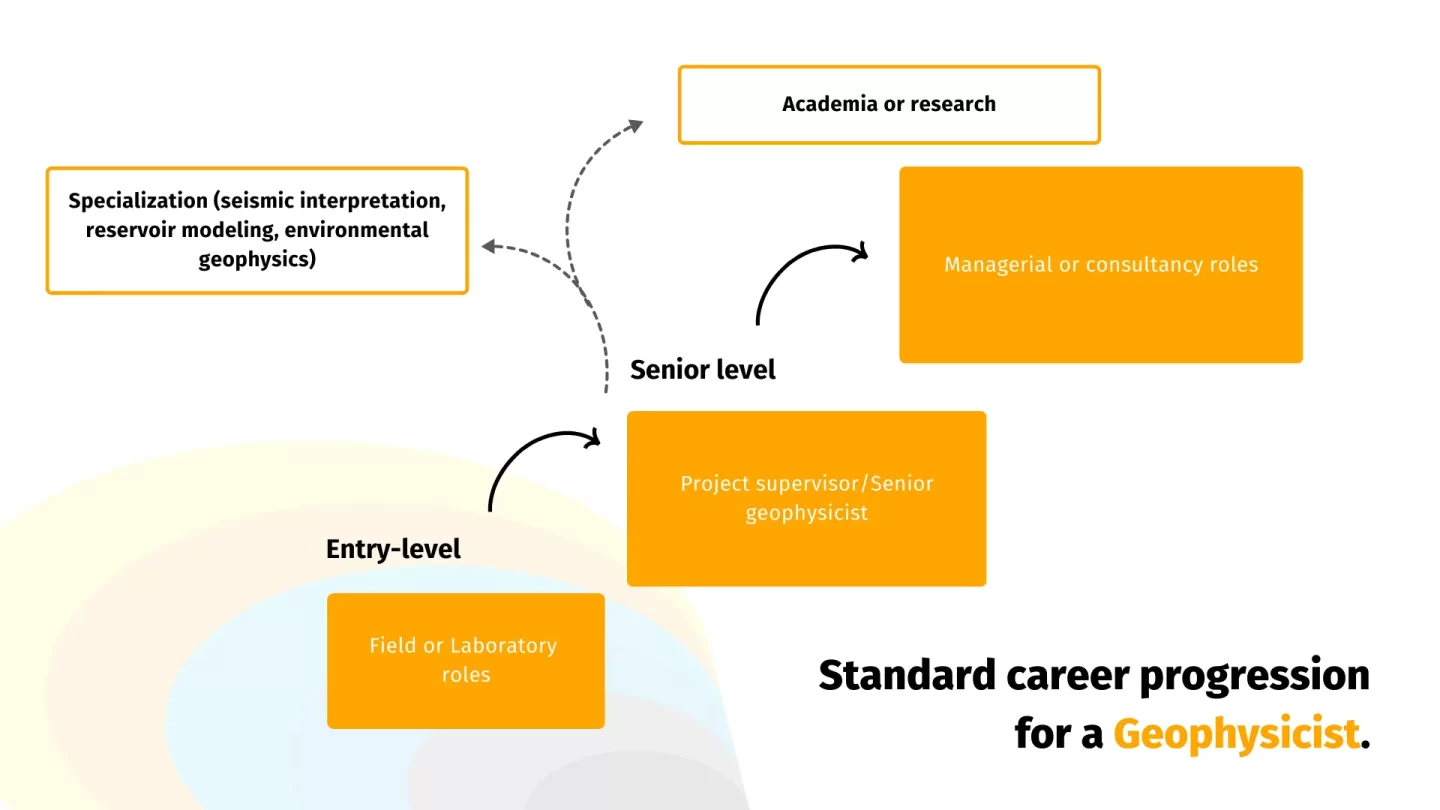What is a geophysicist?
A geophysicist is a scientist who studies the Earth’s physical characteristics, like its shape, gravity, and magnetic fields. They use tools and methods to find and analyze underground resources such as oil, gas, and minerals. Geophysicists play a key role in the energy sector, helping to locate and manage these resources efficiently and safely, ensuring we can meet our energy needs while taking care of our planet.
What does a geophysicist at an energy company do?
A geophysicist at an energy company specializes in studying the Earth’s physical properties to find and develop energy resources. They use seismic and other geophysical methods to map the subsurface and identify potential oil, gas, or geothermal reservoirs. Their work involves collecting and analyzing geophysical data, creating models of the Earth’s subsurface, and collaborating with other scientists and engineers to plan drilling operations and optimize production.
Essentially, they help the company understand where to drill and how to extract energy resources efficiently and sustainably.
Salary and Benefits

The average salary of a geophysicist varies globally, reflecting the demand and economic conditions of each region. In North America, geophysicists earn around $90,000 according to Indeed, while Glassdoor reports a higher average of $118,659. While in Australia, the average salary is AUD 95,000 as listed on SEEK, and in Canada, it’s CAD 130,500 according to ALIS. Then, in the UK, geophysicists earn approximately GBP 47,699, as reported by Jobble UK. New Zealand offers an average salary of $100,000, according to Careers New Zealand. In the UAE, geophysicists can expect to earn around AED 300,000, as per Naukrigulf.com.
These figures demonstrate the lucrative nature of the geophysics field across different markets.
Geophysicist skills and requirements
To succeed as a geophysicist, one needs a strong foundation in geology, physics, and mathematics. Essential skills include proficiency in data analysis and interpretation, particularly of seismic data, to map subsurface structures and identify potential energy resources. Geophysicists must also be adept in using specialized software for data processing and modeling. Strong analytical and problem-solving skills are crucial, as is the ability to work collaboratively with multidisciplinary teams.
Additionally, effective communication skills are necessary to convey complex geophysical concepts to non-specialists. A bachelor’s degree in geophysics, geology, or a related field is typically required, with advanced degrees being beneficial for higher-level research or academic positions.
Responsibilities of a geophysicist

A geophysicist’s responsibilities include conducting seismic surveys and other geophysical methods to explore and map the Earth’s subsurface. They analyze geological data to identify and evaluate potential locations for energy resources like oil, gas, and minerals. Geophysicists also develop and implement data collection and analysis plans, using sophisticated software to create models of the Earth’s interior. They work closely with geologists, engineers, and other specialists to guide drilling operations and resource extraction, ensuring these activities are efficient and environmentally sound.
Additionally, geophysicists often contribute to research and development within their field, advancing knowledge and techniques in geophysical exploration and analysis.
Locations of geophysicist jobs
Geophysicist jobs are typically found in locations with active industries in natural resource exploration and extraction. In addition to research institutions, and government agencies involved in earth sciences. Key locations include:
- Oil and Gas Hubs: Major oil-producing regions like Texas, Louisiana, Alaska in the USA, Alberta in Canada, the Middle East (especially Saudi Arabia and the UAE), and parts of South America like Brazil and Venezuela.
- Mining Areas: Regions with significant mining activities such as Western Australia, South Africa, and parts of South America like Chile and Peru.
- Research Institutions: Universities and research centers worldwide, especially those specializing in earth sciences, offer positions in geophysics for both research and teaching.
- Government Agencies: Organizations like the U.S. Geological Survey (USGS), British Geological Survey, and other national geological services often employ geophysicists for mapping, monitoring, and research purposes.
- Renewable Energy Locations: Areas with a focus on renewable energy sources, such as geothermal energy in Iceland, New Zealand, and parts of the USA like California and Hawaii.
- Consulting Firms: Companies that provide specialized services in environmental assessment, engineering, and construction often hire geophysicists to assist in site evaluation, seismic risk assessment, and other geophysical analyses.
These locations are dynamic and can change with shifts in the global economy, technological advancements, and the energy sector’s focus, including the transition towards renewable energy sources.
Challenges that geophysicists face
Geophysicists face several challenges, including the complexity of interpreting geophysical data, which requires a deep understanding of geological processes and advanced analytical skills. They often work in remote and sometimes harsh environments, which can pose logistical and safety challenges. Technological advancements, while beneficial, also demand continuous learning and adaptation to new tools and methods.
Additionally, the shift towards renewable energy and environmental sustainability presents both challenges and opportunities, requiring geophysicists to adapt their skills to explore and manage new types of resources. Geopolitical and economic factors also impact the industry, influencing funding and job stability in the sector.
Career progression and growth opportunities

Career progression for geophysicists typically begins in field or laboratory roles, conducting data collection and analysis. As they gain experience, they can advance to senior geophysicist positions, overseeing larger projects and leading teams. Many geophysicists move into specialized areas like seismic interpretation, reservoir modeling, or environmental geophysics. With further experience, they can progress to managerial or consultancy roles. Here, they direct exploration strategies or advising on geophysical aspects of engineering projects. Geophysicists with advanced degrees may enter academia or research, contributing to scientific knowledge and training future professionals.
The evolving nature of the energy sector offers growth opportunities in renewable energy and sustainability. This expands the scope for geophysicists to innovate and influence the industry’s direction.
Work environment and culture
The work environment for geophysicists varies widely, from office settings where they analyze data and develop models, to fieldwork in diverse geographical locations where they collect seismic and other geophysical data. The culture is often collaborative, with geophysicists working alongside engineers, environmental scientists, and other specialists. In fieldwork, conditions can be challenging, requiring adaptability and resilience. In research or academic roles, geophysicists may spend more time in laboratories or teaching environments. The industry emphasizes continuous learning due to the evolving nature of geophysical technologies and methods.
Overall, the culture in geophysics values innovation, teamwork, and a commitment to understanding Earth’s processes, with a growing focus on sustainability and ethical resource extraction.
How to become a geophysicist in the Energy Industry
To become a geophysicist in the energy industry, start with a bachelor’s degree in geophysics, geology, physics, or a related field. Gaining practical experience through internships or entry-level positions in energy companies or research institutions is crucial. Advanced studies, such as a master’s or Ph.D. in geophysics, can enhance job prospects and are often necessary for specialized roles or research positions. Developing skills in data analysis, seismic interpretation, and modeling software is essential. Networking within the industry and staying informed about the latest technological and methodological advancements will also be beneficial.
Benefits of working as a geophysicist
Working as a geophysicist offers the benefit of engaging in meaningful work that contributes to understanding the Earth’s processes and aiding in resource management. It provides opportunities for varied and challenging work environments, from fieldwork to data analysis, and offers competitive salaries. Geophysicists also enjoy a collaborative culture with opportunities for continuous learning and career advancement in a dynamic, globally signifi
cant sector.
Drawbacks
Working as a geophysicist can involve significant time in remote or harsh environments, which may be challenging for work-life balance. The role often demands high levels of responsibility and can be stressful. You see this in sectors where economic and environmental stakes are high.
Additionally, the job market can be competitive, with opportunities closely tied to the fluctuating demands of the energy sector.
Current geophysicist careers at WTS Energy
WTS Energy offers career opportunities for geophysicists within the energy industry, focusing on roles in various sectors like bio energy, solar energy, wind energy, and other renewable and non-renewable energy sources. Check out our offer of job vacancies here.
